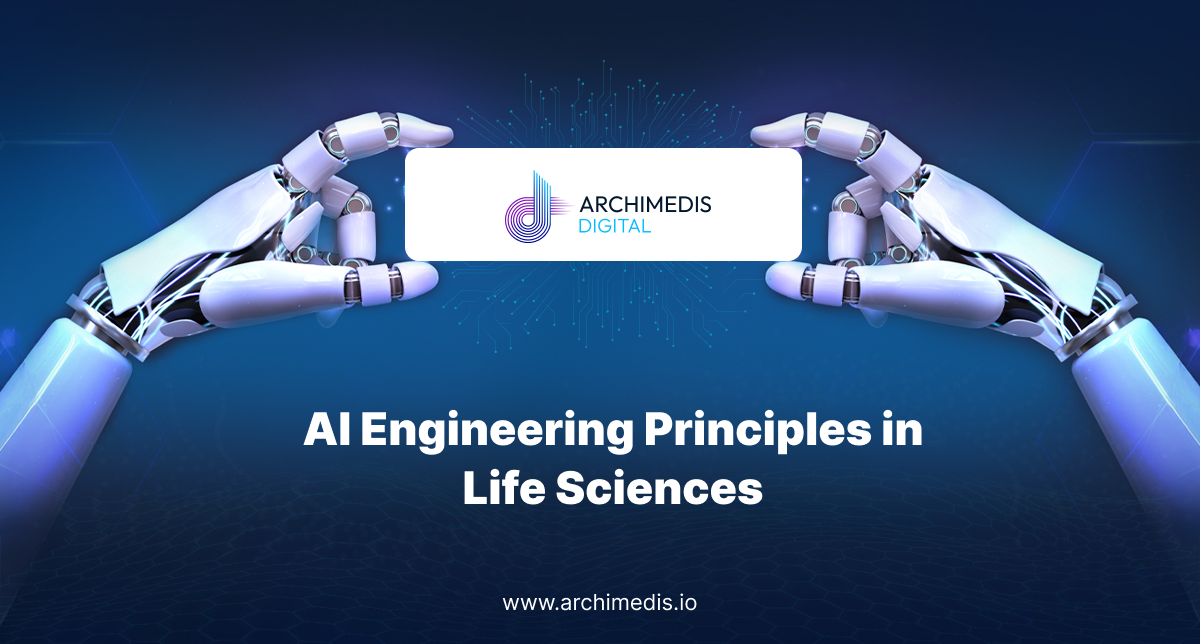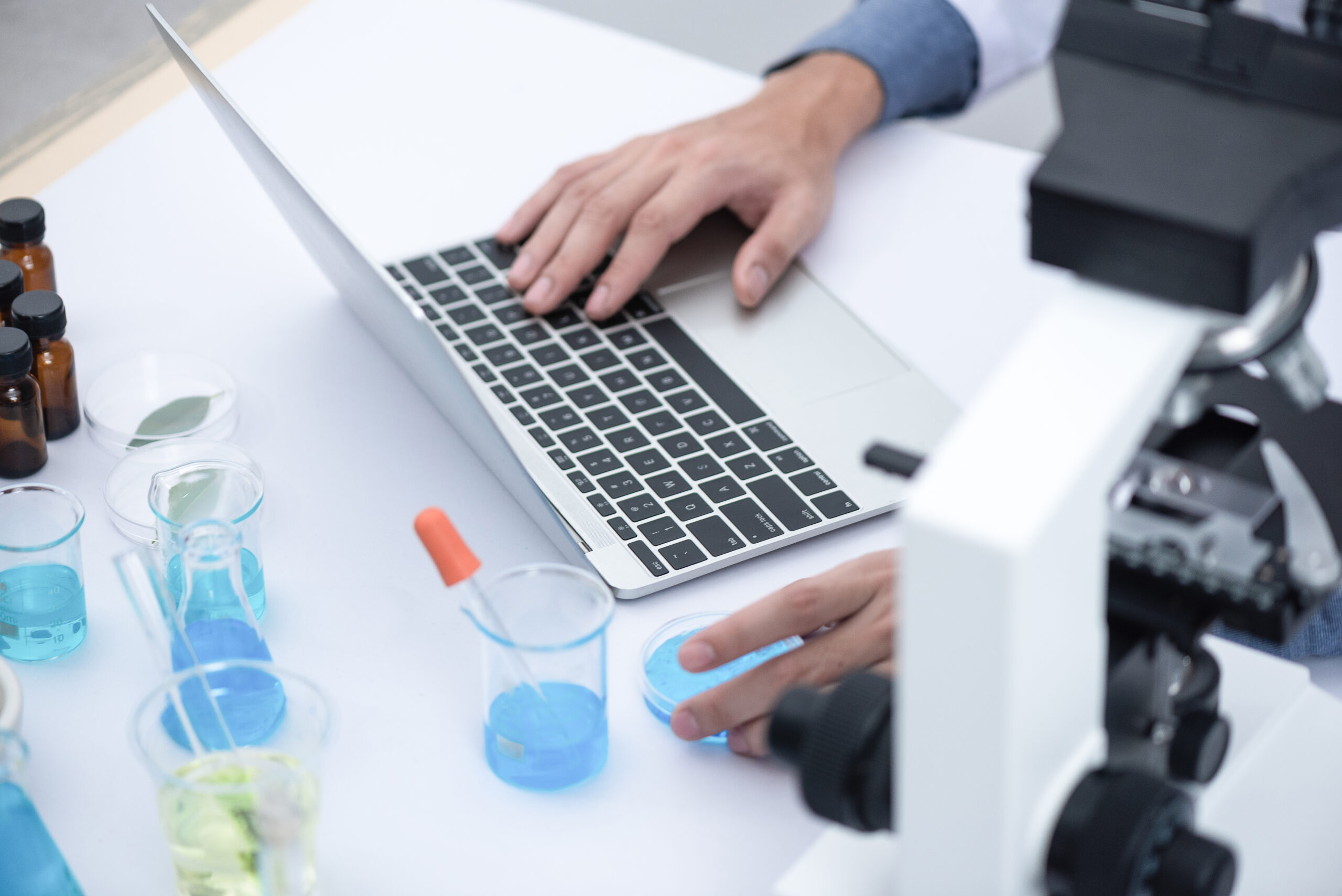Welcome to the era where science fiction meets reality! In recent years, the life sciences sector has grappled with ongoing financial challenges, including fragile supply chains, patent expirations, drug price negotiations, labor shortages, shifting care trends, and escalating costs. To adapt, organizations have shifted towards new technologies and treatments. As we step into 2024, the technological landscape of life sciences is evolving at an unprecedented pace. 77% of BioPharma firms see digital innovation as a competitive advantage. Looking ahead to 2024 and beyond, more executives may need to modify their businesses, embracing transformation in response to persistent economic concerns.
Let’s dive into the key trends of 2024 Q1, where digital transformation is indispensable, not just a prerequisite. Buckle up for a thrilling ride through the transformative trends that are reshaping the future of the life sciences.
Generative Artificial Intelligence (GenAI)
Enter the realm of GenAI, where machines are not just learning from data but actively contributing to the creative process. Generative AI models use existing datasets, incorporating both known drug structures and properties to create new molecules that meet specific criteria. According to Accenture’s Technology Vision Report, 95% of executives believe generative AI will compel their organization to modernize its technology architecture.
As per Deloitte’s Q3 report in 2023, 42% of companies are already in the experimentation phase with GenAI, while 15% are actively integrating it into their business strategies. In 2024, Generative AI has exceeded traditional machine learning boundaries, emerging as a powerful force in drug discovery, genetic research, and personalized medicine.
GenAI algorithms are now capable of generating novel hypotheses, designing molecular structures for drug candidates, and predicting potential side effects. This innovative approach expedites the drug development process, making it more efficient and cost-effective. As GenAI continues to evolve, its potential to unlock new frontiers in life sciences is nothing short of revolutionary.
Cybersecurity
With the digital transformation sweeping through the life sciences sector, the importance of cybersecurity has never been more critical. In 2024, as the volume of sensitive patient data, research findings, and intellectual property stored digitally continues to grow, the need for robust cybersecurity measures becomes paramount.
As artificial intelligence (AI) makes a meteoric rise in the life sciences industry, the paradigm of importance has unmistakably shifted towards security. On one edge of this technological sword, the integration of AI into various facets of research, drug discovery, and patient care has brought in unparalleled efficiency and innovation. However, this transformative wave has also heightened the significance of safeguarding sensitive data and intellectual property.
The industry now grapples with the pressing need to strengthen its digital infrastructure against cyber threats and unauthorized access. While AI is on the path to becoming the linchpin of automation, businesses find themselves navigating a landscape where the objectives have evolved not only towards scientific advancements but also the protection of invaluable information.
The dynamic contrast between the incredible potential of AI and the critical need for robust security measures underscores the delicate balance the life sciences sector must strike to navigate the intricacies of the modern, digitally-driven era. With the inevitable transformation underway, biopharmaceutical companies are increasingly investing heavily in cybersecurity infrastructure to protect against data breaches and cyber threats.
Digital Clean Room
Despite data serving as the driving force behind digital transformation, it introduces challenges related to privacy, security, and trust. The dilemma arises in sharing and analyzing data with partners, customers, or competitors without compromising data assets or revealing sensitive information. Addressing these concerns requires effective risk mitigation strategies for data security and confidentiality.
The life sciences industry could highly benefit from a promising solution to these challenges- the data clean room technology, which facilitates secure and privacy-preserving data collaboration among multiple parties through its software functions and features. This technology has gained prominence across various industries for its ability to enable privacy-preserving sharing and collaboration of data.
The International Data Corporation estimates that over 500 data clean room instances are currently deployed globally with applications extending but not limited to data enrichment, audience creation & activation, measurement & attribution, fraud detection & prevention & research and innovation.
Supply Chain automation
In 2024, supply chain automation emerges as a pivotal trend in the life sciences industry, reshaping operational dynamics and enhancing efficiency. Recognizing the need for streamlined processes and heightened responsiveness, life sciences organizations increasingly adopt automated technologies to manage the intricate web of logistics, procurement, and distribution.
Automation not only accelerates the pace of production and delivery but also ensures greater accuracy and traceability in the supply chain. The integration of advanced technologies such as artificial intelligence, robotics, and data analytics enables real-time monitoring, predictive maintenance, and intelligent decision-making. This transformative shift not only enhances productivity and accuracy but also empowers companies to meet evolving regulatory requirements and consumer demands with greater agility and resilience in the dynamic landscape of the life sciences sector.
Sustainable Technology
In an age where sustainability is paramount, the life sciences sector is no exception. In 2024, the industry is making strides towards eco-friendly practices and sustainable technology. From energy-efficient laboratory equipment to waste reduction initiatives, the life sciences are aligning with the global movement towards a greener future.
Sustainable practices are not just a moral imperative but also a strategic necessity, ensuring that technological advancements are in harmony with the planet. As we witness the convergence of technology and environmental consciousness, the life sciences sector is embracing its role as a responsible steward of both scientific progress and the Earth.
Conclusion
As we navigate the digital bounds of 2024, the convergence of technological advancements is reshaping the life sciences landscape. These trends are not just technological advancements; they represent a fundamental shift in the approach to life sciences operations. Buckle up for the journey ahead, where science fiction continues to become science fact, and the future of life sciences is as exciting as it is transformative.





